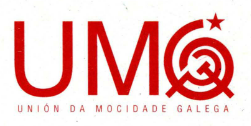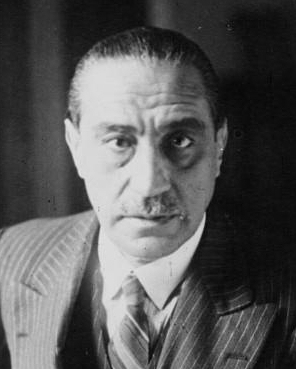|
Néstor Rego
Néstor Rego Candamil (born 2 April 1962) is a Galician teacher, politician and a member of the Congress of Deputies of Spain. He is leader of the Galician People's Union. Early life Rego was born on 2 April 1962 in O Vicedo, Galicia. He grew up in A Mariña where he was acquainted with other young Galician nationalists including Hernán Naval. He was educated in Viveiro where he joined the Galician Revolutionary Students (ERGA) in 1977. He was one of the founders of the Galician Youth Union (UMG), the youth wing of the Galician People's Union (UPG). Rego has a degree in geography and history from the University of Santiago de Compostela. Whilst at university he helped found the Comités Abertos de Faculdade, a student organization. When the Galician Nationalist Bloc (BNG) was founded in 1982 Rego joined its leadership as a representative of ERGA. Career Rego taught Galician language and literature in high schools. He has taught at the Antón Losada Diéguez Institute i ... [...More Info...] [...Related Items...] OR: [Wikipedia] [Google] [Baidu] |
Congress Of Deputies
The Congress of Deputies ( es, link=no, Congreso de los Diputados, italic=unset) is the lower house of the Cortes Generales, Spain's legislative branch. The Congress meets in the Palacio de las Cortes, Madrid, Palace of the Parliament () in Madrid. It has 350 members elected by constituency, constituencies (matching fifty Provinces of Spain, Spanish provinces and two Autonomous cities of Spain, autonomous cities) by closed list proportional representation using the D'Hondt method. Deputies serve four-year terms. The presiding officer is the President of the Congress of Deputies, who is elected by the members thereof. It is the analogue to a speaker. In the Congress, MPs from the List of political parties in Spain, political parties, or groups of parties, form Parliamentary group (Spain), parliamentary groups. Groups must be formed by at least 15 deputies, but a group can also be formed with only five deputies if the parties got at least 5% of the nationwide vote, or 15% of the ... [...More Info...] [...Related Items...] OR: [Wikipedia] [Google] [Baidu] |
Galician Youth Union
The Galician Youth Union (UMG, ''Unión da Mocidade Galega'' in Galician language) is the youth wing of the Galician People's Union. It was created in August 1977. History The document of the Galician People's Union (UPG) ''The youth of the party'', in February 1977, included the decision to create the UMG due to the increase in the number of supporters, members and activists of the UPG in high school or that were young workers. University students were already members of the Galician Revolutionary Students (ERGA). This led the party to the creation of a youth organization which, besides serving to bring to the Galician youth "a patriotic and communist political line", could address the youth particular issues and problems effectively. The creation of UMG was ratified in the 1st Congress of UPG in August 1977, few days after the UMG itself was officially founded. In the spring of 1977 a recruitment of militants was carried out, along with cell organization and theoretical and ... [...More Info...] [...Related Items...] OR: [Wikipedia] [Google] [Baidu] |
Europa Press (news Agency)
Europa Press is a Spanish news agency founded in 1953. It broadcasts news 24 hours a day, publishing 3,000 articles on average per day. It serves content to almost 2,000 clients, including the main Spanish media: radios; newspapers; televisions and national, autonomic and local digital media. Also, among its clients there are the High Statal Institutions, all Public Ministries, Autonomous Governments, Public Halls, Public Deputations and the rest of Public Administrations at all levels, political parties, business organizations, labor unions and the main companies and foundations. These informations -with both general and specialized character and served in text and audiovisual format- are one of the main information sources for mass media and press offices. Europa Press has headquarters in every Spanish Autonomous Community and correspondents in each provincial capital. This allows the news agency to offer a very concrete informative product from local and autonomic issues, wh ... [...More Info...] [...Related Items...] OR: [Wikipedia] [Google] [Baidu] |
Socialists' Party Of Galicia
The Socialists' Party of Galicia ( gl, Partido dos Socialistas de Galicia, PSdeG–PSOE) is a centre-left political party in Galicia, Spain. It is the Galician affiliate of the Spanish Socialist Workers' Party (PSOE). It defines itself as a Galicianist, social-democratic Social democracy is a Political philosophy, political, Social philosophy, social, and economic philosophy within socialism that supports Democracy, political and economic democracy. As a policy regime, it is described by academics as advocati ... party. Electoral performance Parliament of Galicia Cortes Generales European Parliament Notes References External links ;Official *Xuventudes Socialistas Galicia Political parties with year of establishment missing Social democratic parties in Spain Socialist parties in Galicia (Spain) {{Spain-party-stub ... [...More Info...] [...Related Items...] OR: [Wikipedia] [Google] [Baidu] |
2007 Spanish Local Elections
The 2007 Spanish local elections were held on Sunday, 27 May 2007, to elect all 66,131 councillors in the 8,111 municipalities of Spain and all 1,038 seats in 38 provincial deputations. The elections were held simultaneously with regional elections in thirteen autonomous communities, as well as local elections in the three foral deputations of the Basque Country and the eleven island councils in the Balearic and Canary Islands. The results saw few changes overall; most incumbent governments retained their majority, with only a few exceptions. The PP government in the Balearics fell, and a coalition led by PSOE took power. While the elections were seen as a first indication of how the 2008 Spanish general election might turn out, the results proved to be inconclusive. In 2003, the PSOE had a slight edge with 34.8 against the PP's 34.3; in this election, the PP had 35.6 to the PSOE's 34.9. Turnout was slightly lower, with 63.8 instead of 67.7 four years earlier. Electoral sy ... [...More Info...] [...Related Items...] OR: [Wikipedia] [Google] [Baidu] |
2003 Spanish Local Elections
The 2003 Spanish local elections were held on Sunday, 25 May 2003, to elect all 65,510 councillors in the 8,108 municipalities of Spain and all 1,036 seats in 38 provincial deputations. The elections were held simultaneously with regional elections in thirteen autonomous communities, as well as local elections in the three foral deputations of the Basque Country and the ten island councils in the Balearic and Canary Islands. Electoral system ;Municipal elections Municipalities in Spain were local corporations with independent legal personality. They had a governing body, the municipal council or corporation, composed of a mayor, deputy mayors and a plenary assembly of councillors. Voting for the local assemblies was on the basis of universal suffrage, with all nationals over eighteen, registered in the corresponding municipality and in full enjoyment of all political rights entitled to vote. The mayor was in turn elected by the plenary assembly, with a legal clause providing ... [...More Info...] [...Related Items...] OR: [Wikipedia] [Google] [Baidu] |
1999 Spanish Local Elections
The 1999 Spanish local elections were held on Sunday, 13 June 1999, to elect all 65,201 councillors in the 8,104 municipalities of Spain and all 1,034 seats in 38 provincial deputations. The elections were held simultaneously with regional elections in thirteen autonomous communities, as well as local elections in the three foral deputations of the Basque Country, the ten island councils in the Balearic and Canary Islands and the 1999 European Parliament election. Electoral system ;Municipal elections Municipalities in Spain were local corporations with independent legal personality. They had a governing body, the municipal council or corporation, composed of a mayor, deputy mayors and a plenary assembly of councillors. Voting for the local assemblies was on the basis of universal suffrage, with all nationals over eighteen, registered in the corresponding municipality and in full enjoyment of all political rights entitled to vote. The mayor was in turn elected by the plenary ... [...More Info...] [...Related Items...] OR: [Wikipedia] [Google] [Baidu] |
Ministry Of The Interior (Spain)
The Ministry of the Interior (MIR) is a department of the Government of Spain responsible for public security, the protection of the constitutional rights, the command of the law enforcement agencies, national security, immigration affairs, prisons, civil defense and road traffic safety. Through the Undersecretariat of the Interior and its superior body, the Directorate-General for Internal Policy, the Ministry is responsible for all actions related to ensuring political pluralism and the proper functioning of electoral processes. The MIR is headed by the Minister for Home Affairs, who is appointed by the Monarch at request of the Prime Minister. The Minister is assisted by three main officials, the Secretary of State for Security, the Secretary-General for Penitentiary Institutions and the Under-Secretary of the Interior. Among the director generals, the most important are the Director-General of the Police and the Director-General of the Civil Guard. This department ha ... [...More Info...] [...Related Items...] OR: [Wikipedia] [Google] [Baidu] |
1995 Spanish Local Elections
The 1995 Spanish local elections were held on Sunday, 28 May 1995, to elect all 65,869 councillors in the 8,067 municipalities of Spain and all 1,034 seats in 38 provincial deputations. The elections were held simultaneously with regional elections in thirteen autonomous communities, as well as local elections in the three foral deputations of the Basque Country and the ten island councils in the Balearic and Canary Islands. Electoral system ;Municipal elections Municipalities in Spain were local corporations with independent legal personality. They had a governing body, the municipal council or corporation, composed of a mayor, deputy mayors and a plenary assembly of councillors. Voting for the local assemblies was on the basis of universal suffrage, with all nationals over eighteen, registered in the corresponding municipality and in full enjoyment of all political rights entitled to vote. The mayor was in turn elected by the plenary assembly, with a legal clause providing ... [...More Info...] [...Related Items...] OR: [Wikipedia] [Google] [Baidu] |
El Correo Gallego
''El Correo Gallego'' is a Galician newspaper founded in Ferrol, Spain, by José María Abizanda in 1878. In 1938 its owner, Juan Sáenz-Díez García, moved the daily to Santiago de Compostela; since then the paper has been headquartered there. The publisher of the daily is Editorial Compostela S.A. See also *''El Ferrol Diario ''Ferrol Diario'' was a Galician newspaper founded in Ferrol, Spain, sometime in the late 1950s and very early 1960s. It did not survive the turbulent and difficult years of the early 1980s, which were marked with a huge recession in the shipbui ...'' References External links Official website 1878 establishments in Spain Daily newspapers published in Spain Mass media in Ferrol, Spain Mass media in Santiago de Compostela Publications established in 1878 Spanish-language newspapers {{Galicia-stub ... [...More Info...] [...Related Items...] OR: [Wikipedia] [Google] [Baidu] |
A Estrada
A Estrada is a municipality of the Pontevedra province in Galicia in northwestern Spain. It is located some southeast of Santiago de Compostela. Etymology The name comes from the Latin word ''strata'', with the meaning of ''trodden earth, where one walks, I walk''. In fact, two paths crossed in the main square: from south to north up a path from Terra de Montes, Ourense and Portugal, where the herdsmen and pilgrims going to Santiago de Compostela passed; and east to west, from the lands of Deza, Trasdeza and the interior of Galicia, where herdsmen headed to the coast. History Tabeirós jurisdiction stems from the days of the Swabian King Miro in the sixth century and is mentioned in the Chronicon Iriense as belonging to the diocese of Iria. In the twelfth century, the archbishop of Santiago Gelmírez and King Alfonso VII of Castile exchanged land between Tabeirós, Tabeirolos and the Faro fort, passing the first into the possession of the Compostela miter. This jurisdiction cove ... [...More Info...] [...Related Items...] OR: [Wikipedia] [Google] [Baidu] |

.jpg)

.jpg)